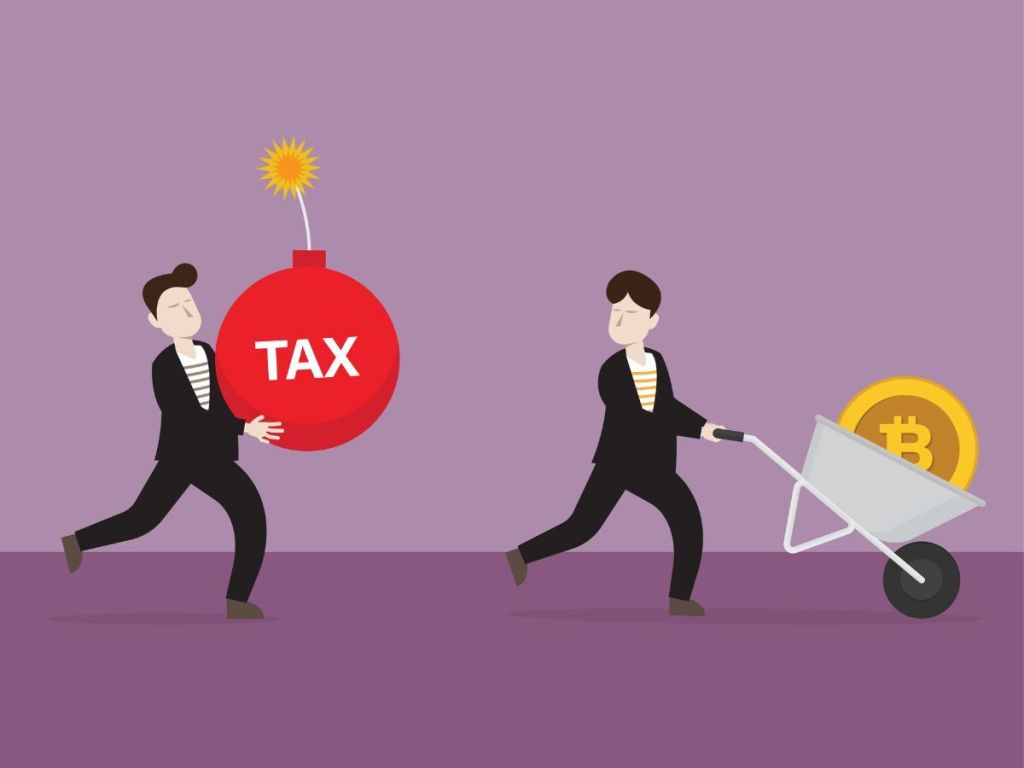It’s that super fun time of year where we have to start thinking about doing our taxes. But for cryptocurrency holders, there are some developments that you need to be aware of. The most important is that the Australian Tax Office (ATO) is putting its laser eyes onto crypto trades this year and checking up on us to make sure we aren’t being naughty. Crypto tax talk may be boring but hang in there until the end because you are going to need to know this stuff.
Crypto tax: The ATO is watching
The Australian Tax Office (ATO) is focusing on four key areas for tax time 2022. And capital gains or losses from crypto assets is very much on the list. Here’s what you need to know.
While most people understand that changing crypto into Australian dollars needs to be reported to the ATO (whether it is a profit or loss), most people don’t know if you use one crypto to buy another crypto, that too needs to be reported to the ATO. In fact, every time you do this, it needs to be reported.
Danny Talwar is Head of Tax at Koinly. Koinly sells software that tracks all of your crypto trades and, at the end of the financial year, works out what you owe to the ATO.
Says Talwar, “A lot of people frequently trade between cryptocurrencies. So for example, they might trade from Bitcoin into stablecoins, and then they might transfer stablecoins into other crypto assets as well.” Doing this, says Talwar, is a taxable event.
“It’s not just selling out for fiat that is a taxable event. There is crypto to crypto, but also if you’re staking, you can earn income. This is subject to tax.”

The ATO is all over it
So does the ATO know what we are doing with our crypto? The answer is yes. Says Talwar, “Blockchains are inherently traceable. So you can trace the interactions with your wallets and it is also worth noting that exchanges are required to give information to the ATO.”
When Australians sign up to a crypto exchange, they are required to provide identification (through a process called Know Your Customer, or KYC). Talwar says that this KYC process often links exchange accounts to people’s IDs.
And Talwar says that the ATO do understand crypto and are all over it. “They’re definitely making efforts to release guidelines. Back in 2014, guidance was first released on cryptocurrency. And recently, they have called out crypto as a focus area in terms of making sure people declare cryptocurrency gains, so it’s definitely something they’re focusing on.”
Crypto tax advice
So what would Talwar’s advice be? The responsibility lies with crypto enthusiasts, who need to make sure they’re properly disclosing any gains they’ve made to the ATO. “Crypto is like any other asset. So, make sure you’re on top of that. Using accountants would really help for people that hold crypto, particularly if investors are kind of new to dealing with taxes.”
What if you are confounded by the thought of doing your own taxes? That’s where you can automate the process. Says Talwar, “We’ve seen a huge amount of engagement with crypto holders that want to do the right thing and pay their taxes. But they haven’t had the had the tools or the understanding as to what they can do to best comply.”
The software that Koinly (and other companies with similar products) offer will automate the preparation of crypto taxes. This is done by plugging in every crypto wallet that an individual or company has and letting the software keep track of the cryptocurrency movements.
“We apply the ATO guidance into the software and that will show the amount of capital gains tax (CGT) to pay, or if there are any losses during the year. It also allows users to understand what those losses are so they can utilise them in their return.”

With the end of the financial year fast approaching, you are welcome to start panicking. Happy tax time, cryptocurrency lovers!



